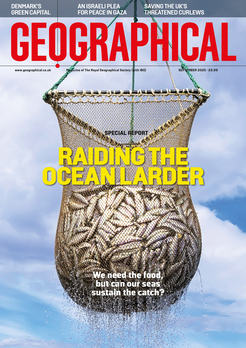
For consumers it’s likely to become more and more difficult to separate the sustainable wheat from the greenwashed chaff, says Marco Magrini
Climatewatch
As more and more people are finally beginning to worry about the climate crisis, total assets in funds that claim to invest exclusively in sustainable or climate-friendly stocks more than doubled in a year, reaching a staggering US$2.2 trillion in June. This is clearly a good thing. Yet, such growth may be at least partly responsible for the widespread practice of funds pretending to be ‘greener’ than they really are.
According to InfluenceMap, a London-based climate watchdog, 55 per cent of the 130 climate-themed financial funds are ‘misaligned with the Paris Agreement goals’. And people are starting to notice. In Germany, asset manager WS is under investigation due to claims that it misled clients regarding its sustainable investment products.
The practice has a name – greenwashing. It’s ‘disinformation disseminated by an organisation so as to present an environmentally responsible public image,’ according to the Concise Oxford Dictionary. Certainly, it isn’t confined to the financial realm, where there are at least regulators watching on. Almost every international corporation, irrespective of industrial sector, has painted its public image green to some extent.
GreenWatch, a research team at University College Dublin, has sifted through media statements, websites and marketing communications from 700 global companies using an artificial intelligence tool. It found that more than 80 per cent of statements from the industrials and materials sectors ‘have a high likelihood of greenwashing’. Many corporations pledge to reach the promised land of net zero emissions by 2050, at a time when all of their top executives will be retired (or otherwise no longer around).
However, nothing compares to the recently announced Oil Sands Pathways to Net Zero, an alliance of the five biggest tar sand mining companies in Alberta, Canada. As part of their ‘pathway’, the companies have committed to achieving net zero emissions in their operations by 2050, all while continuing to produce the dirtiest of crude oils. In a nutshell, their operations consist of felling the boreal forest along the Athabasca River, digging the sands and then separating them from oil-rich tar through steam jets that require huge amounts of water and natural gas. Their net-zero claims rest on promises of carbon capture technology, emission offsetting and other chicaneries. Of course, none of that takes into account the carbon that will be emitted by their customers’ use of the oil.
All in all, for consumers and investors alike, it’s likely to become more and more difficult to separate the sustainable wheat from the greenwashed chaff.




